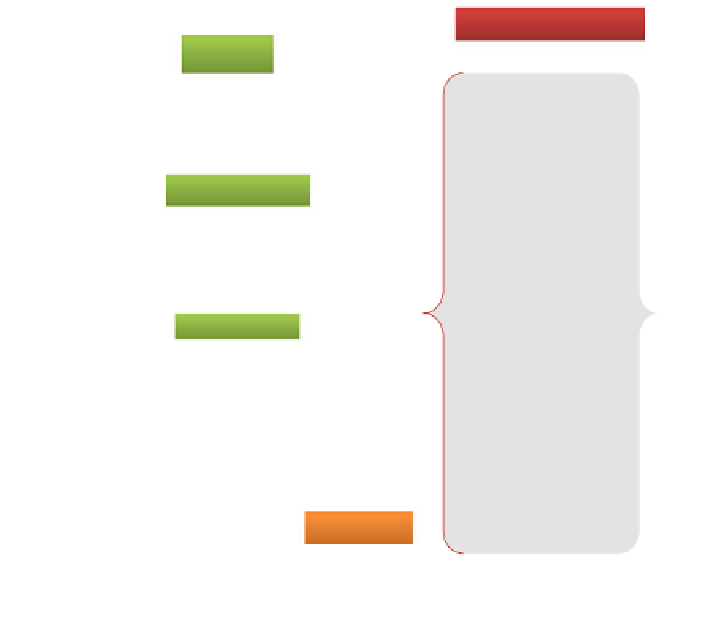Environmental Engineering Reference
In-Depth Information
fluxes); (2) interactionality (interactions with exogenous factors, (policy, economy,
environment, etc.) and (3) hybridity (building trans-disciplinary approaches).
Life cycle thinking is the conceptual idea behind LCCA that reflects the com-
prehensiveness of the approach in a systems perspective. LCCA takes the whole
chain and spread of activities that take into consideration the nexus and the
embedded granularity. It takes all the phases of the life cycle of a product or service
that are required during pre-production, production and post-production into con-
sideration. These include even the externalities of the production process (Fig.
3
).
It is also argued that the applicability of LCCA in development projects is limited in
scope to the context of developing countries, as the all-pervasive social and political
drivers are not adequately considered in the present LCCA tools (McConville
2006
). LCCA is also data intensive, often making it dif
cult to use for development
work. A life cycle evaluation of development projects must incorporate diverse
factors in a practical manner with a judicious mix of quantitative and qualitative
aspects. Further, lack of formal guidelines and reliable past data and dif
culty in
estimating future costs appear to be the main reasons for the tardy adoption of
LCCA. The tool,
therefore, must be consistent with successful development
Externalities
Pre-
Production
Water Sector
Design/Planning
Policy
Source
Energy Sector
Production
Process (Technologies)
Agricultural & Other
production systems
Packaging
Livelihoods / Food
Security
Post Production
Distribution
Micro
Environment
Use / Consumption
Climate
Change
Waste generation
Policy
Environment
Re-cycle
Treatment & Disposal
Retirement
Fig. 3 LCCA framework in nexus approach















Search WWH ::

Custom Search